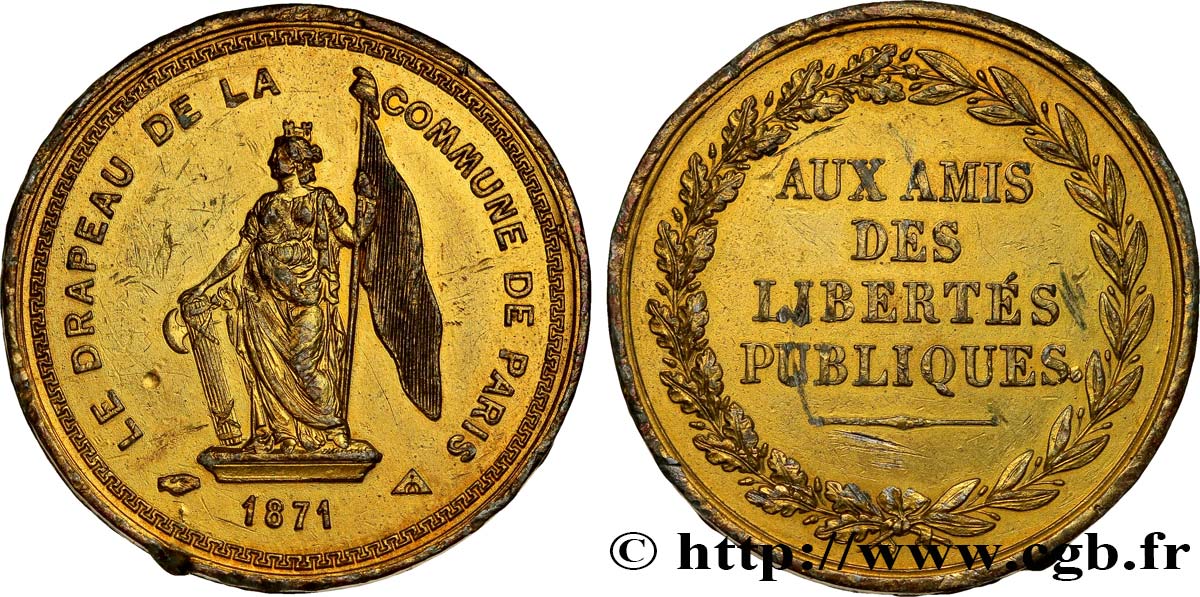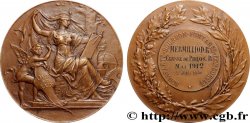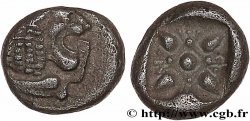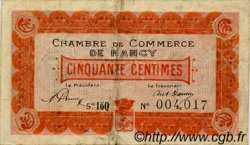fme_423627 - TERZA REPUBBLICA FRANCESE Médaille de la Commune
non disponibile.
Articolo venduto sul nostro negozio (2020)
Prezzo : 100.00 €
Articolo venduto sul nostro negozio (2020)
Prezzo : 100.00 €
Tipo : Médaille de la Commune
Data: 1871
Nome della officina / città: 75 - Paris
Metallo : stagno dorato
Diametro : 41 mm
Asse di coniazione : 12 h.
Peso : 40 g.
Orlo : lisse
Commenti sullo stato di conservazione:
Médaille en plomb doré, avec de beaux reliefs mais des petits coups, plus importants sur la tranche
Diritto
Titolatura diritto : LE DRAPEAU DE LA COMMUNE DE PARIS.
Descrittivo diritto : La ville de Paris personnifiée, tenant un drapeau surmonté du bonnet phrygien et un faisceau.
Rovescio
Titolatura rovescio : AUX AMIS / DES / LIBERTÉS / PUBLIQUES.
Descrittivo rovescio : Légende en 4 lignes dans une couronne de chêne et de lauriers.
Commento
La Commune de Paris est une période insurrectionnelle de l'histoire de Paris qui dura un peu plus de deux mois, du 18 mars 1871 à la « Semaine sanglante » du 21 au 28 mai 1871. Cette insurrection contre le Gouvernement, issu de l'Assemblée nationale qui venait d'être élue au suffrage universel, ébaucha pour la ville une organisation proche de l'autogestion. Elle est en partie une réaction à la défaite française de la guerre franco-prussienne de 1870 et au siège de Paris.
.
The Paris Commune was an insurrectionary period in the history of Paris that lasted a little over two months, from March 18, 1871, to the \\\"Bloody Week\\\" of May 21-28, 1871. This insurrection against the government, which emerged from the National Assembly, which had just been elected by universal suffrage, outlined for the city an organization close to self-management. It was partly a reaction to the French defeat in the Franco-Prussian War of 1870 and the siege of Paris.
.
The Paris Commune was an insurrectionary period in the history of Paris that lasted a little over two months, from March 18, 1871, to the \\\"Bloody Week\\\" of May 21-28, 1871. This insurrection against the government, which emerged from the National Assembly, which had just been elected by universal suffrage, outlined for the city an organization close to self-management. It was partly a reaction to the French defeat in the Franco-Prussian War of 1870 and the siege of Paris.








 Segnalare un errore
Segnalare un errore Stampate la pagina
Stampate la pagina Condividi mia selezione
Condividi mia selezione Fai una domanda
Fai una domanda Consegnare / vendere
Consegnare / vendere
 Descrittivo
Descrittivo















